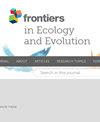东非森林生态系统服务评估研究回顾
IF 2.4
3区 环境科学与生态学
Q2 ECOLOGY
引用次数: 0
摘要
东非地区拥有多种森林生态系统,如林地、高原森林和沿海红树林。这些生态系统对生物多样性至关重要,支持着各种动植物物种。它们提供必要的资源,直接或间接地惠及民生。研究森林生态系统估值的区域和全球差异,尤其是在生计利益方面的差异,对于与基于森林的气候解决方案保持一致的可持续资源管理至关重要。本综述旨在评估区域背景因素和全球趋势如何影响东非的生态系统服务 (ES) 估值,有两个主要目标:(1)确定东非评估最多的生态系统服务;(2)确定东非采用的首选生态系统服务评估方法和途径。在系统综述过程中,使用了科学网/Clarivate 平台的数据,采用系统证据综述报告标准检索和分析了 222 篇文章。利用千年生态系统评估框架和生态系统服务共同国际分类法对生态系统服务进行了分类,以创建审查数据库。提供服务(即木材生物量和食物生产)的评估比例最高,为 55%,其次是 30%的调节服务(即碳储存)、8.6% 的支持服务(即栖息地)和 6.4%的文化服务(即生态旅游),这反映了社区对森林资源的直接依赖。首选的直接环境服务评估技术包括市场价格(14.9%用于评估供给服务)和旅行成本法(10.4%用于评估文化服务)。在间接的环境服务评估技术中,14.7%的人首选遥感技术,因为事实证明这种技术对于大面积和偏远的热带林区非常有效。11.8% 的参与式方法(如访谈法)也受到青睐,因为它们能提供有关社区优先事项的整体视角。本综述提供了有关地区优先 ES 估值的空间背景,这对保护子孙后代的自然资源至关重要。本文章由计算机程序翻译,如有差异,请以英文原文为准。
Review of forest ecosystem services evaluation studies in East Africa
The East African region hosts diverse forest ecosystems, such as woodlands, highland forests, and coastal mangrove forests. These ecosystems are crucial for biodiversity and support various plant and animal species. They provide essential resources, benefiting livelihoods directly and indirectly. Examining regional and global variations in forest ecosystem valuation, especially regarding livelihood benefits, is crucial for sustainable resource management aligned with forest-based climate solutions. The aim of this review is to assess how regional contextual factors and global trends impact the valuation of ecosystem services (ES) in East Africa, with two main objectives (1) to identify the most evaluated ES in East Africa and (2) to identify the preferred ES valuation methods and approaches applied in East Africa. Data from the Web of Science/Clarivate platform was used in the systematic review process using the Reporting standard for Systematic Evidence Syntheses to retrieve and analyse 222 articles. The ES were categorized using the Millennium Ecosystem Assessment framework and the Common International Classification of Ecosystem Services in order to create a review database. Provisioning services i.e., wood biomass and food production were the most assessed at 55%, followed by 30% regulating services i.e., carbon storage, 8.6% support services i.e., habitat and 6.4% cultural services i.e., ecotourism which reflected communities’ direct reliance on forest resources. The preferred direct ES valuation techniques included market price at 14.9% for assessing provisioning services and travel cost methods at 10.4% for cultural services. Amongst the indirect ES valuation techniques, remote sensing at 14.7% were preferred as they proved efficient for large and remote tropical forest areas. Participatory methods such as interviews at 11.8% were also preferred because they offer holistic perspectives on community priorities. This review provides spatial context on the regional priorities of ES valuation which is vital for safeguarding natural resources for future generations.
求助全文
通过发布文献求助,成功后即可免费获取论文全文。
去求助
来源期刊

Frontiers in Ecology and Evolution
Environmental Science-Ecology
CiteScore
4.00
自引率
6.70%
发文量
1143
审稿时长
12 weeks
期刊介绍:
Frontiers in Ecology and Evolution publishes rigorously peer-reviewed research across fundamental and applied sciences, to provide ecological and evolutionary insights into our natural and anthropogenic world, and how it should best be managed. Field Chief Editor Mark A. Elgar at the University of Melbourne is supported by an outstanding Editorial Board of international researchers. This multidisciplinary open-access journal is at the forefront of disseminating and communicating scientific knowledge and impactful discoveries to researchers, academics and the public worldwide.
Eminent biologist and theist Theodosius Dobzhansky’s astute observation that “Nothing in biology makes sense except in the light of evolution” has arguably even broader relevance now than when it was first penned in The American Biology Teacher in 1973. One could similarly argue that not much in evolution makes sense without recourse to ecological concepts: understanding diversity — from microbial adaptations to species assemblages — requires insights from both ecological and evolutionary disciplines. Nowadays, technological developments from other fields allow us to address unprecedented ecological and evolutionary questions of astonishing detail, impressive breadth and compelling inference.
The specialty sections of Frontiers in Ecology and Evolution will publish, under a single platform, contemporary, rigorous research, reviews, opinions, and commentaries that cover the spectrum of ecological and evolutionary inquiry, both fundamental and applied. Articles are peer-reviewed according to the Frontiers review guidelines, which evaluate manuscripts on objective editorial criteria. Through this unique, Frontiers platform for open-access publishing and research networking, Frontiers in Ecology and Evolution aims to provide colleagues and the broader community with ecological and evolutionary insights into our natural and anthropogenic world, and how it might best be managed.
 求助内容:
求助内容: 应助结果提醒方式:
应助结果提醒方式:


